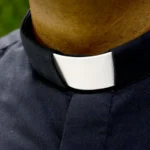by Emmanuel Joseph
Barbados has recorded a single case of leprosy, the Ministry of Health has confirmed. But Deputy Chief Medical Officer Dr Arthur Phillips gave an assurance that there was no need for panic.
The rare disfiguring disease that was once the scourge of life in Barbados 100 years ago, required sufferers to be isolated in a purpose-built leper colony.
“The reality is that we usually have zero or one case of leprosy; that’s the general trend,” Dr Phillips told Barbados TODAY in an interview.
“Right now, we have one case that is being treated, and they are coming to the end of their treatment, and they have another month or two to go.”
The last reported case of leprosy in Barbados was in 2022, according to the World Health Organisation (WHO), and there have been no reported cases since 2014.
The announcement that one leprosy patient was currently being treated came in response to a request by Barbados TODAY to outline the country’s status concerning the disease after Saint Lucia reported 11 new cases of the debilitating illness, representing a 120 per cent increase from 2020 to 2023.
Health authorities in the neighbouring island have already drafted a national plan for the elimination of leprosy from the island, which the World Health Rankings placed at 141.
Barbados, on the other hand, is ranked 29th.
Officially known as Hansen’s Disease, leprosy is a long-term but curable bacterial infection that mainly affects the skin, eyes, nose and peripheral nerves. Although it can spread from person to person, scientists say it is not spread through casual physical contact like shaking hands. They say the disease-causing Mycobacterium leprae bacteria are transmitted by droplets from an infected person’s coughs or sneezes during a prolonged period of close contact.
Worldwide, two to three million people are estimated to be permanently disabled because of leprosy. India has the greatest number of cases, with Brazil second and Indonesia third.
At highest risk are those living in endemic areas with poor conditions such as inadequate bedding, contaminated water and insufficient diet, or other diseases such as HIV that compromise immune function.
Leprosy was once so endemic to Barbados in the decade following the abolition of slavery in the 19th century that the government passed the Act to Provide Care and Maintenance of Persons Afflicted with Leprosy in 1846.
More than 300 acres were earmarked in the late 1860s for the site of a sprawling leper colony and burial ground at Batts Rock, which became known as the Lazaretto, becoming a leper hospital by 1910. The former Pelican Island was a quarantine for leprosy before it was closed and the island absorbed into the Bridgetown Port.
The post Leprosy makes rare show but officials say ‘don’t panic’ appeared first on Barbados Today.


